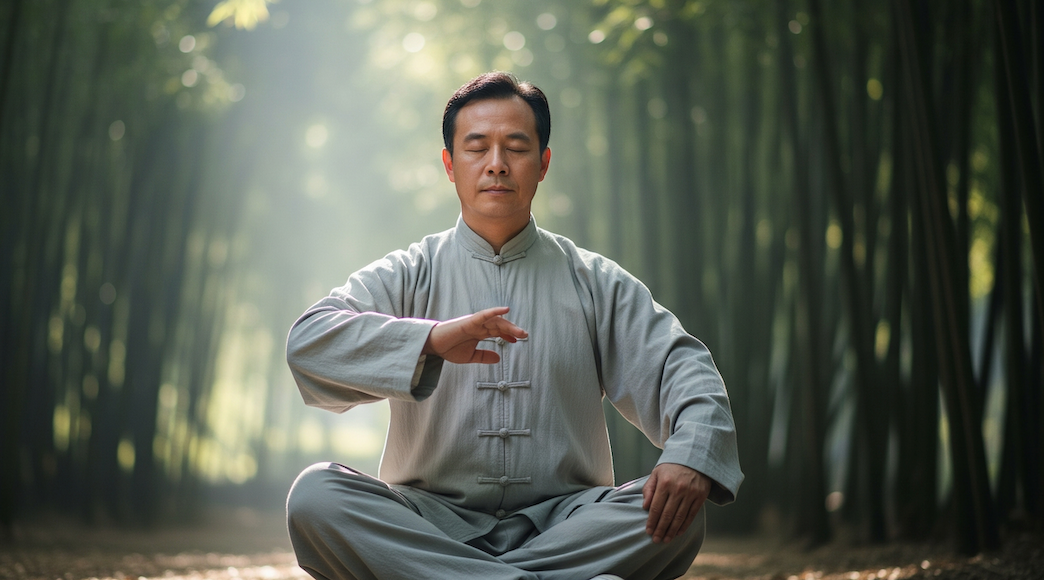
Qigong for Anxiety and Stress Relief: How Breath and Stillness Reset the Body and Mind
Can a simple breath-based practice ease anxiety and bring deep calm—even without movement?
Qigong, a traditional Chinese healing art, may hold powerful answers. While it's often known for its flowing postures, some of its most potent effects come from what happens inside: a shift in awareness and physiology that modern science now links to reduced stress, emotional balance, and even deep metabolic rest.
At Puyu Retreat, we explored what classical Qigong teachings say about these experiences—and found scientific studies that echo them.
🧠 Qigong and the Mind: Like Hypnosis, But Self-Guided
When we dove into Qigong’s deeper practices, we discovered a fascinating similarity to hypnosis. Qigong doesn’t just calm you—it shifts your state of consciousness. Practitioners learn to enter a focused yet relaxed mental state where:
-
The outside world fades
-
The breath slows
-
Internal awareness becomes vivid
This focused rest is what many describe as “entering stillness”, and it's a state that neuroscience has begun to study.
-
In a 2018 EEG study, Qigong practitioners showed increased alpha and theta brain waves—patterns associated with meditative calm and reduced anxiety.
-
Another study showed the same brainwave changes even when practitioners only imagined doing Qigong, confirming it’s the mental focus, not the movement, that drives the effect.
These neural changes mirror what happens during clinical hypnosis and deep meditation. The result? Less mental chatter, fewer intrusive thoughts, and a deepened ability to regulate stress.
🫁 What Happens to the Body During Qigong Stillness?
We also came across remarkable accounts of advanced Qigong practitioners entering states of extreme stillness—so deep, they resemble hibernation. In one documented case, a yogic practitioner was observed by physicians surviving underground for eight days without food or water, while maintaining full consciousness.
More moderate versions of this have been scientifically measured:
-
Lowered oxygen consumption
-
Slowed breath rate
-
Decreased heart rate variability
These are signs of a highly active parasympathetic nervous system—the one responsible for “rest and digest.”
In Traditional Chinese Medicine, this deep physical quiet is seen as essential to healing. In Western terms, it means:
-
Lower cortisol (stress hormone)
-
Increased immune function
-
Faster recovery from fatigue
Qigong, then, isn’t just for anxiety. It’s a holistic reset for the entire stress system.
Real Benefits of Qigong for Anxiety and Stress Relief
Here’s what makes Qigong so uniquely powerful:
-
It’s body-neutral: You don’t need flexibility or stamina.
-
It’s portable: You can do it sitting, standing, or even mentally.
-
It’s fast-acting: Many practitioners feel calmer within minutes.
-
It’s cumulative: Like meditation, the more you practice, the more resilient you become.
Clinical applications include:
-
Generalized anxiety
-
Sleep disturbances
-
High blood pressure
-
Stress-induced fatigue
And unlike medication or high-effort exercise, it works gently, from the inside out.
If you’re wondering how this stress-relieving effect ties into broader wellness, it’s part of why Qigong is often linked to healthy aging. By calming the nervous system and lowering long-term inflammation, Qigong supports a foundation for lifelong vitality.
At Puyu Retreat, we’ve curated wellness journeys that blend ancient breath practices, stillness, and nature immersion—helping you disconnect from the noise and reconnect with your inner rhythm.
Leave your email to get early access to our next wellness retreat in China’s most peaceful settings.


